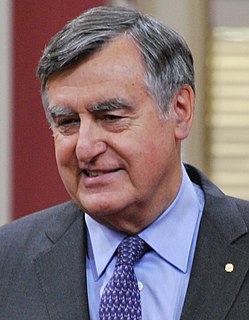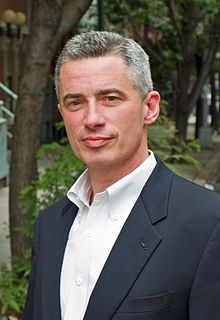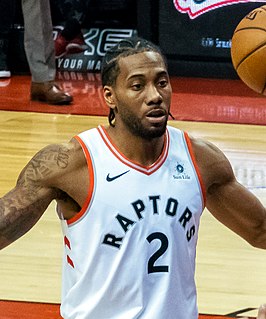A Quote by Mario Cuomo
In the end, I'm convinced we will all benefit if suspicion is replaced by discussion, innuendo by dialogue; if the emphasis in our debate turns from a search for talismanic criteria and neat but simplistic answers to an honest - more intelligent - attempt at describing the role religion has in our public affairs, and the limits placed on that role.
Related Quotes
The problems that exist on Wall Street today go to the center of a debate in this country about wealth and democracy. We cannot keep our democracy if those who are in charge of handling the engines of our economy are not honest with their shareholders. That's why there is a role for government regulation here. That role for government is breaking up the monopolies, insisting on public disclosure, insisting on public audits, insisting on restitution whenever someone has been cheated.
The role of campaign contributions in our political system and the role of lobbyists have now reached levels that are quite unhealthy for the operations of our democracy. But the antidote, as in past eras of lobbyist excess, is for more involvement by citizens to build pressure on members of the House and Senate to serve the public interest.
Religion is part of the human make-up. It's also part of our cultural and intellectual history. Religion was our first attempt at literature, the texts, our first attempt at cosmology, making sense of where we are in the universe, our first attempt at health care, believing in faith healing, our first attempt at philosophy.


































